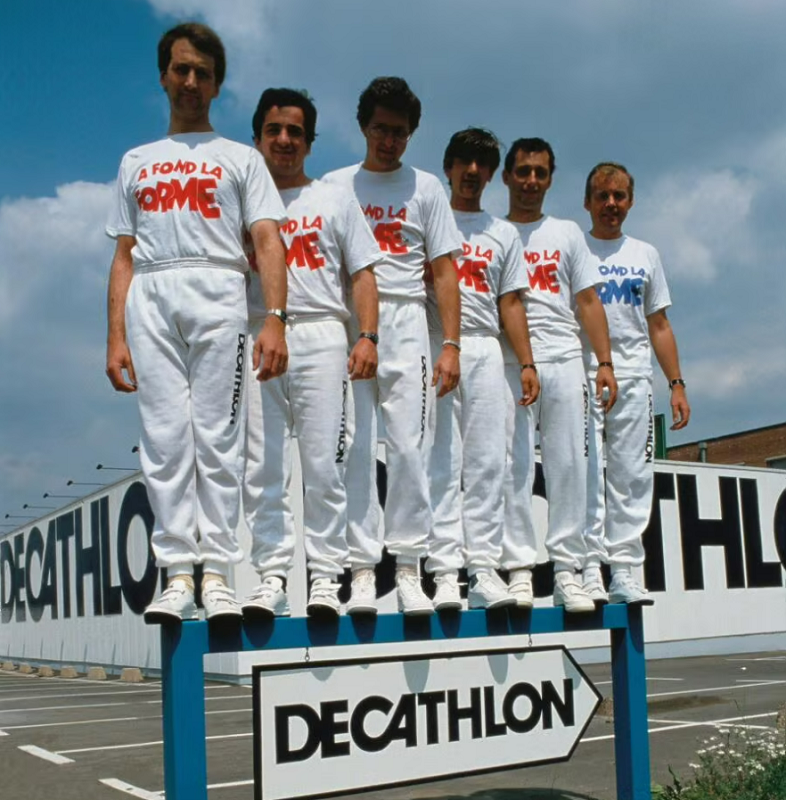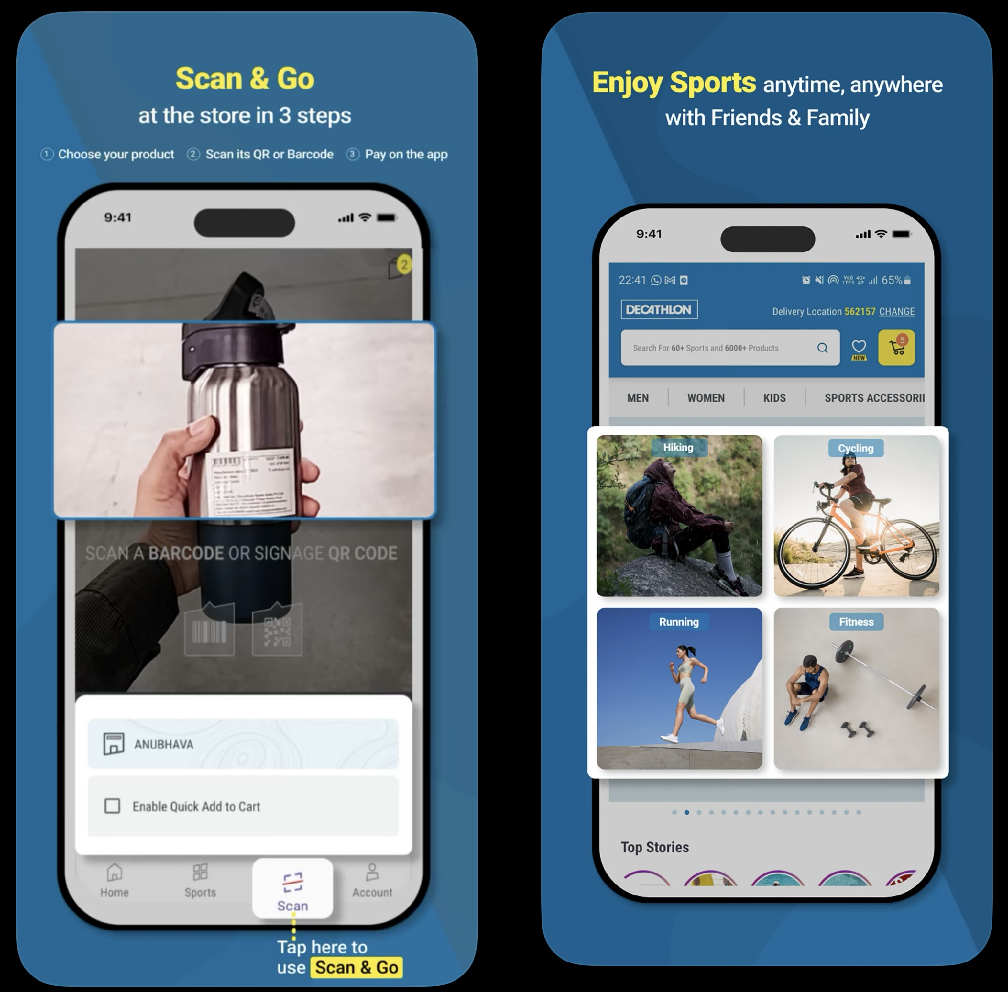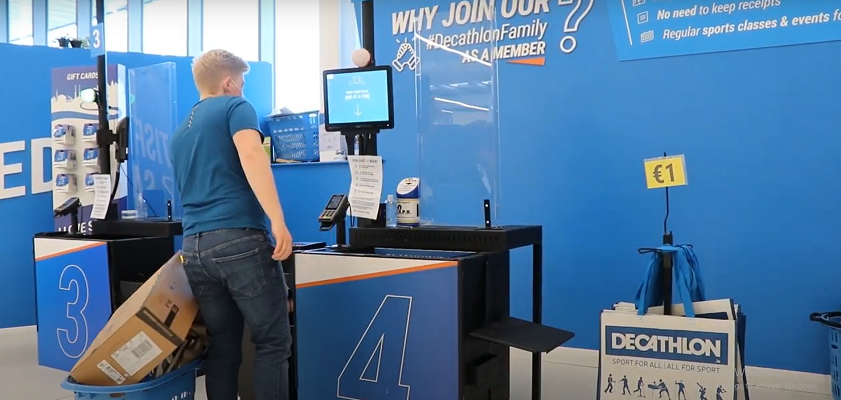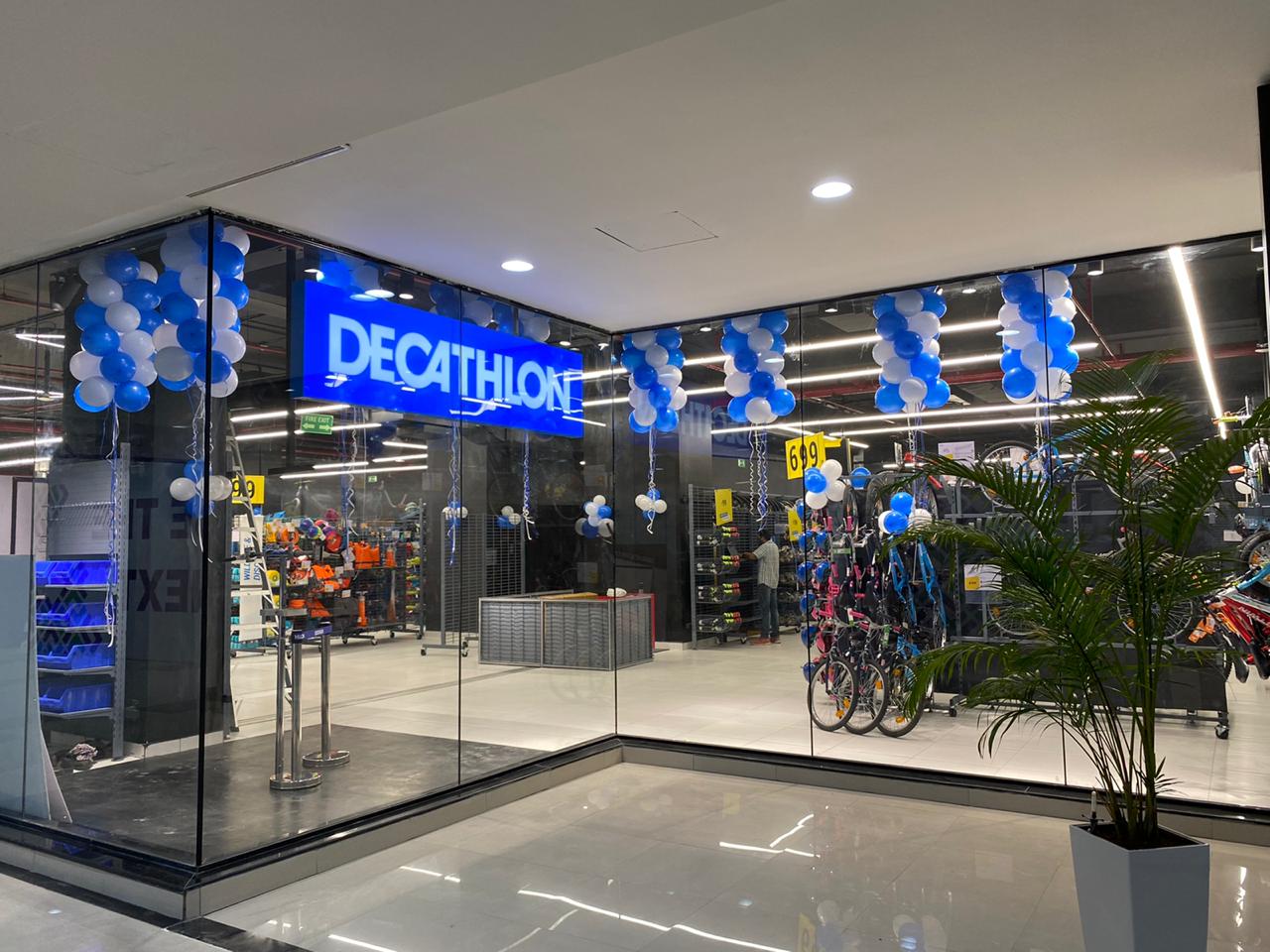Long queues at its in-store checkout counters were impacting Decathlon’s business. Here’s how the sports retail chain used technology to not only achieve faster checkouts but also increase store efficiency
New Delhi: Founded in 1976 by Michel Leclerq, France-based sporting goods retailer Decathlon offers sports apparel and equipment for men, women and kids across various segments, including outdoor, water, fitness, racket, team, cycling, running, walking, roller, and target sports.

The global sporting goods company entered India in 2009 as a cash-and-carry retailer and was approved for single-brand retail in 2013. It opened its first store in India in 2009 at Sarjapur in Bengaluru and it has 103 stores across the country and over 1,600 across the globe (as of August 2022).
Later in 2022, Decathlon became the sports partner of Kolkata Thunderbolts for the 2022 season of the Prime Volleyball League.
In keeping with the single-brand foreign direct investment compliances, Decathlon sources 60% of its inventory from the country itself, also supporting the ‘Make in India’ initiative.
“In case of textile-based products, it is over 70%,” Deepak D’Souza, country production director, Decathlon India said in a 2022 media interview.
He added that 35 of its vendors (apparel manufacturers) across India had a workforce of more than 60,000.
“Most of our suppliers and our teams are engaged in capacity management, efficiency/quality improvements, continuous improvements, and advanced manufacturing while implementing best practices that could be benchmarked to the global standards,” D’Souza added.
With growth come challenges and the same happened with Decathlon India. Its growing
popularity as the go-to destination for sports related shopping resulted in long queues at the check-out counters, which was frustrating to consumers. It was driving away customers, resulting in loss for the company.
Decathlon Sports India turned to technology to address the issue and regain customers.
Here’s how…
The Challenge
As the store’s popularity picked up, it was swarmed with customers. Billing counters required more and more dedicated manpower, even then the efficiency was not up to the mark. Customers faced frustration due to the serpentine queues at checkout.
The Approach
This prompted the company to adapt self check-outs (SCO). An in-house custom-built RFID-enabled self check-out application to enhance the overall value offered to customers.
Here’s how Decathlon Sports India implemented this technology:
1. Worked with multiple vendors and partners to ensure that the different components of the SCO system could communicate with each other effectively, providing a seamless and user-friendly experience to customers.
2. Adopted a collaborative approach, involving cross-functional teams from technology, operations, and store teams.
3. Connected the store team and the vendors supplying the technology.
4. Provided comprehensive training to store employees on how to use and support the new system to ensure its success. The training included, the process of operating the new SCO technology and how to handle common issues that customers might encounter.
5. Integrated Web point of sale ERP system.
The project offered customers the option to bill themselves using the ECO till or Scan and Pay App. This reduced the dependence on manned tills, enabling customers to complete their shopping experience with greater convenience and ease.

The Impact
1. 50% faster check-outs drastically reducing wait time at the check-out counters.
2. 30% of overall transactions processed through express check-outs.
3. 15% increase in store efficiency.
4. Better customer service as the store personnel were freed from handling check-out operations, allowing them to offer personalized shopping experience.
5. Delighted customers and an overall increase in customer loyalty.
6. 8-12% increase in customer satisfaction (CSAT) scores.
7. Improved on-time-in full (OTIF) metrics by reducing checkout times and ensuring that customers are able to purchase products quickly and easily, leading to a more streamlined and efficient supply chain. On-time in-full (OTIF) is a supply chain metric for measuring performance in the logistics industry. In logistics, OTIF is used to measure a supplier’s ability to keep a delivery commitment deliver in terms of time frame and quantities.
8. Improved stock turns by quicker movement of products getting off the shelves, as customers are able to check out faster and reduce the amount of time spent in-store.
9. Improved fill rates by reducing the amount of time it takes to restock shelves and replenish inventory, leading to a more efficient supply chain and better product availability for customers.
10. Increased efficiency and cost savings as the company could reduce its costs as a percentage of revenue by streamlining checkout processes and reducing the need for dedicated manned tills.

Conclusion
Decathlon envisaged that the implementation of its SCO process would result in faster checkouts (20-40% less time taken), an unmanned experience for customers, and an increase in revenue and revenue per customer or ticket size. While it is still early to report on the financial impact, the company is confident that the enhanced customer experience and increased efficiency will ultimately lead to increased revenue and ticket sizes, said Decathlon.
The company further plans to roll out this technology across all its stores to sustain the benefits realized and also find more ways of selling and cashiering to optimize the checkout process.
The SCO technology by Decathlon can be replicated as it is based on widely available RFID technology and can be implemented in other retail stores as well. The technology is easily scalable and can be customized to fit the specific needs of different retail businesses.
Decathlon expects the future of self-checkout and express checkout technology as one that will continue to drive greater efficiency, convenience and customer satisfaction.





